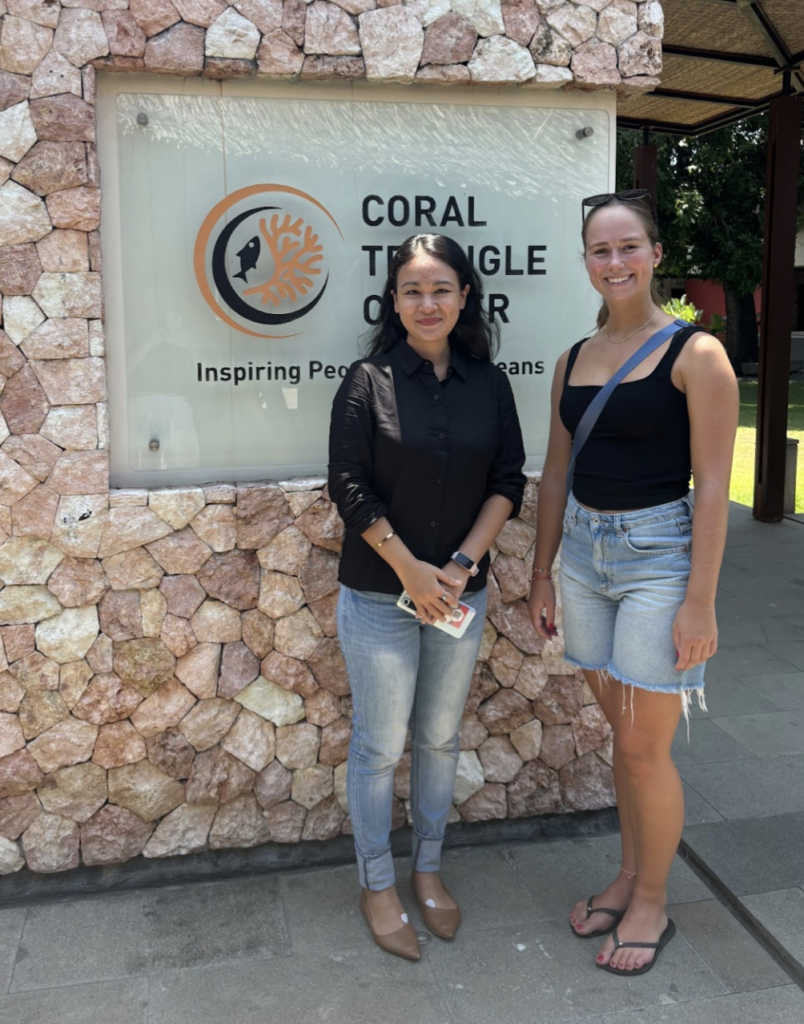CTC, Center for marine conservation, 28/10
My study visit to the Center for Marine Conservation provided me with a deeper and more nuanced understanding of the vulnerable coral reefs and the Coral Triangle, an area with the countries; Indonesia, Malaysia, Papua New Guinea, the Philippines, Solomon Islands, and Timor-Leste. The coral reefs in this region are not only ecologically significant but also play a central role in the local economy. The visit underscored the urgent threats facing these ecosystems, especially in light of climate change, overfishing, and pollution.
During the visit, I met Nina, responsible for much of the organization’s educational work. She explained how they work to raise awareness of the importance of coral reefs, especially among local communities and schools. I also had the opportunity to meet one of their coral restoration researchers, who provided detailed descriptions of the different methods used to restore damaged coral reefs.
The Center for Marine Conservation (CTC) was established in 2010 in collaboration with the Indonesian government to promote the conservation of marine ecosystems and empower local communities. The office, where the visit took place, was built in 2017 and currently houses about 30 employees. The researcher explained how the Mars Assisted Reef Restoration System (MARRS) is used in their work. MARRS involves attaching coral fragments to a steel structure, providing the corals with a stable foundation to grow on.
I was told about a recent project where the MARRS method was applied to a dying coral reef. The results have been promising: three years after the steel structures were deployed, several corals have now grown, demonstrating the potential of this method as a tool to combat coral decline.
The meeting at CTC was both educational and inspiring. It provided insights not only into how crucial coral reef conservation is for people living in directly affected areas but also into how innovative methods can be used to try to save these vital marine ecosystems. This visit made me realize how important this issue is for the people living in these areas. The need to solve these problems feels even more urgent here, as their daily lives are deeply connected to the health of the coral reefs.

